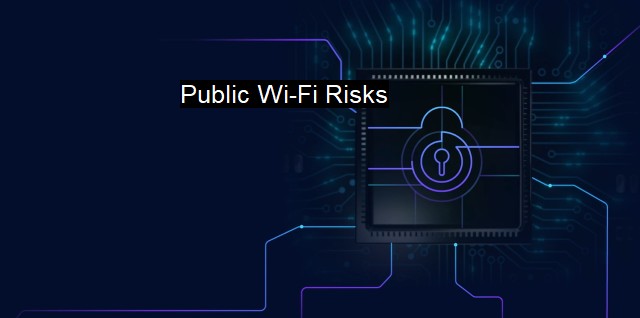What are Public Wi-Fi Risks?
Protecting Yourself from Public Wi-Fi Risks: A Comprehensive Analysis of Cybersecurity and Antivirus Threats
While the availability of public Wi-Fi is becoming increasingly widespread and allowing us to stay connected at all times, it is crucial not to ignore the inherent risks that accompany the use of these networks. it is abundantly essential to bring awareness to the potential dangers of public Wi-Fi and how users can stay protected.Public Wi-Fi, it refers to the wireless internet service that public establishments like restaurants, libraries, airports, and hotels provide for their customers or the general public. On the surface, these networks might seem friendly because, for most people, free internet is an unbeatable offer. unknown to many users, there's a significant compromise on security. Public Wi-Fi is usually unsecured because it lacks robust encryption of the data transferred over the network. This particular characteristic tends to expose users to manifold cybersecurity risks.
Some examples of public Wi-Fi risks revolve around activities like eavesdropping, malware distribution, and personal data theft. Eavesdropping, which in cybersecurity terms, can be referred to as "Man-in-the-Middle" attacks, is commonplace on public Wi-Fi. Since most of these networks lack robust data encryption protocols, cybercriminals can intercept information sent or received over the network, imposing severe compromise to privacy. In several cases, individuals have fallen victim to hackers who've intercepted personal conversations, captured passwords, and accessed data from tech-savvy criminals lurking on the same network.
The issue of malware distribution is a significant public Wi-Fi risk as well. A public network may inadvertently serve as a channel for distributing harmful software, such as viruses or ransomware. For instance, without appropriate security measures, an infected device connected to the Wi-Fi can easily initiate the transmission of malware to other connected gadgets. Consequently, the unsuspecting victims may end up with serious damages like loss of crucial data, corruption of system functionality, or even hijacking of the computer's resources.
Another significant threat particulate to these public networks is the spoofing of Wi-Fi networks, often labeled as "Evil Twin" attacks. Cybercriminals create mock Wi-Fi access points that seem legitimate to unsuspecting users. Once a user connects to these rogue networks, the attackers gain direct access to the data transmitted, further engendering scenarios of identity theft and financial loss among victims.
While many are aware that antivirus software can help protect against malware, they may not realize that many other types of protections are also necessary. Given the number and nature of risks associated with public Wi-Fi, proactive measures are indispensable. This would include using Virtual Private Networks (VPNs), which encrypt all data transferred over the network, regardless of the level of security the wireless connection provides. Also, avoiding public networks altogether if possible, especially when conducting sensitive operations like online banking, can go a long way in ensuring personal security. Antivirus applications also keep the system secure and provide an active defense against any suspicious activity.
While public Wi-Fi networks are a convenience that adds significant value in today's hyper-connected world, they carry inherent security risks. Therefore, while using these amenities, it is crucial to stay aware of these potential dangers and take relevant protective measures to ensure your cybersecurity is not compromised. In so doing, we can enjoy the benefits of staying connected without putting our personal and sensitive information at risk.

Public Wi-Fi Risks FAQs
What are some risks associated with using public Wi-Fi?
Using public Wi-Fi can put your device and personal information at risk of being hacked. Hackers can intercept data transmitted over public Wi-Fi networks, such as login credentials and credit card information.How can I protect my device from public Wi-Fi risks?
You can protect your device from public Wi-Fi risks by using a virtual private network (VPN). A VPN encrypts your internet traffic, making it difficult for hackers to intercept your data.Is it safe to use antivirus software on public Wi-Fi networks?
While antivirus software can detect and remove malware from your device, it cannot protect you from all public Wi-Fi risks. It is still important to take additional precautions, such as using a VPN and avoiding sensitive activities, like online banking, on public Wi-Fi.What should I do if I suspect that my device has been compromised on a public Wi-Fi network?
If you suspect that your device has been compromised on a public Wi-Fi network, immediately disconnect from the network and turn off Wi-Fi on your device. Run a full virus scan using your antivirus software, and consider resetting your passwords and monitoring your financial accounts for suspicious activity.| | A | | | B | | | C | | | D | | | E | | | F | | | G | | | H | | | I | | | J | | | K | | | L | | | M | |
| | N | | | O | | | P | | | Q | | | R | | | S | | | T | | | U | | | V | | | W | | | X | | | Y | | | Z | |
| | 1 | | | 2 | | | 3 | | | 4 | | | 7 | | | 8 | | |||||||